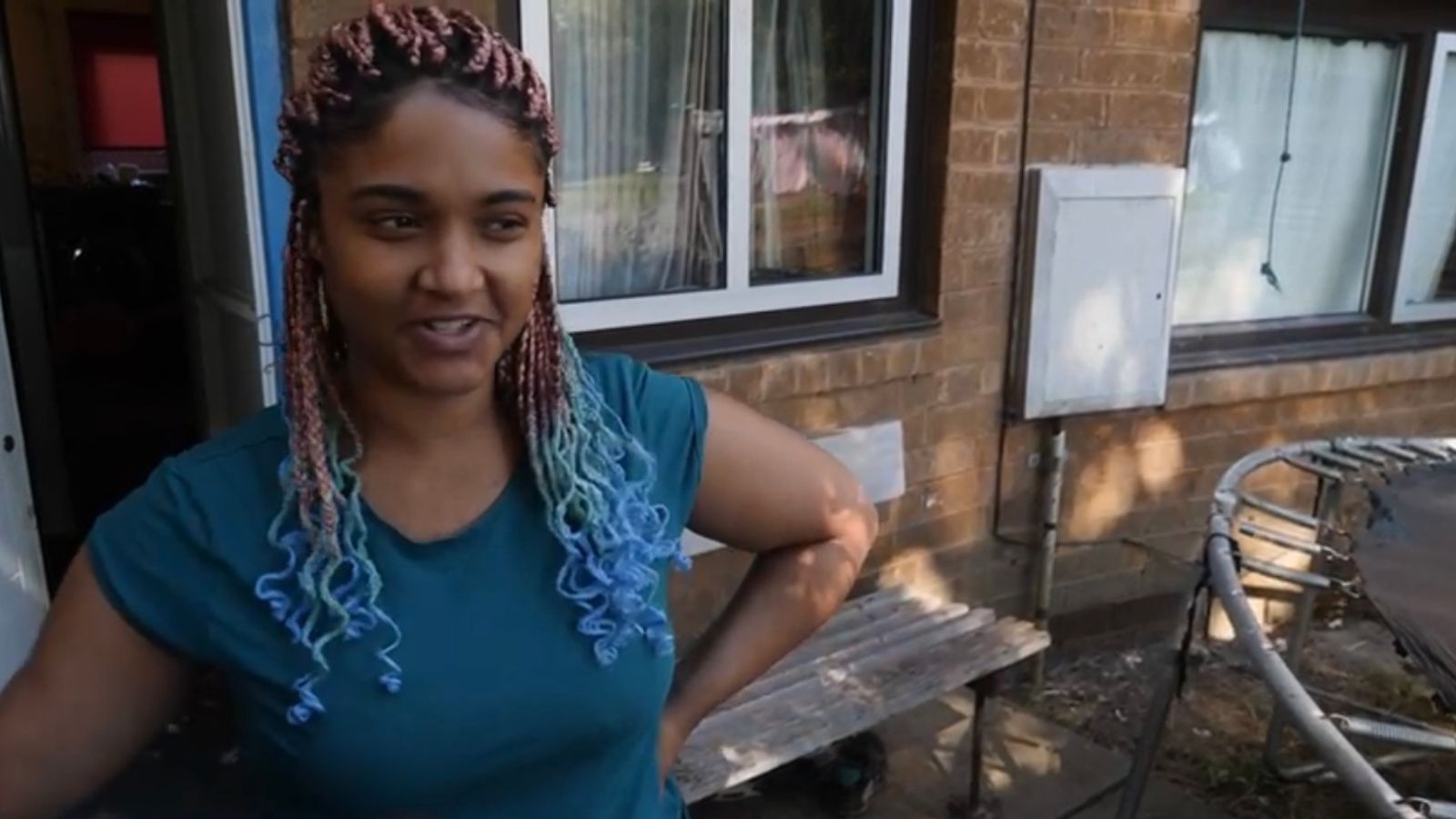When Nabila runs short of something she needs for dinner, she’ll nip next door and see if they can help.
Last week it was an onion, so she could make her three sons a decent meal.
Not long ago, she passed on some extra tins of fruit to some friends she knew were struggling.
Helplines, money saving hacks and analysis – cost of living updates
It’s happening more and more often on her estate in Byker, one of the most deprived parts of Newcastle.
Improvising and supporting each other is one of the most basic ways through the cost of living crisis.
Almost everyone’s budgets are under pressure, but it’s particularly daunting for those without savings to fall back on.
Nabila’s sons do have the good fortune of a free summer activity club that pitches up on the patch of grass outside their home on Wednesdays through the summer holidays.
Youth worker Rebecca Lloyd was organising the games and told Sky News: “Even today I’ve just been speaking to a young person who doesn’t want to tell their parents their shoes are now too small for them because they know the problems it will cause…that’s the reality.”
The club is organised by Children North East, one of 70 charities that this week called on the government to do much more to tackle the growing financial storm people find themselves in.
Chief executive Leigh Elliott told Sky News more and more families are approaching them for help in a region that already had some of the highest child poverty rates in the UK.
“The demand has gone up through the roof,” she said.
“It is a ticking time bomb…that will impact on everyone around. By the time we get to the winter it is going to be excessive and people will have nothing, and what are people going to do?
“Your crime is going to go up, anti-social behaviour will go up.
“You are going to have more [of a] divide in communities.”
Read more:
Poorest households see prices rise 24% faster than richest
Three things that need to happen for prices to return to normal
Please use Chrome browser for a more accessible video player
For many in Byker, their main link to the rest of the city – to jobs and opportunities – is the Tyne and Wear Metro.
It may be an essential service that isn’t actually run for profit, but they too have escalating bills. The electricity costs for powering the trains have risen from £8m a year to over £16m over the past 12 months.
A new fleet of energy efficient trains due to come into service next year can’t arrive soon enough.
Director of finance and resources John Fenwick told Sky News: “We have got cost pressures everywhere we look.
“You have to just try and absorb it…we have got to keep going because we are an essential public service, so we just have to find a way.”
But he added: “If the cost of living crisis goes on and on and on, at some point we will have to consider if we can maintain services, but for this year and into next, we have a plan.”
Read more: Why have food prices gone up so much?
Please use Chrome browser for a more accessible video player
Keeping life on track when prices are climbing at their fastest rate for 40 years is a juggling act that is testing people’s resolve and resources.
With further increases predicted through the autumn and winter, borrowing the odd onion just won’t be enough.








